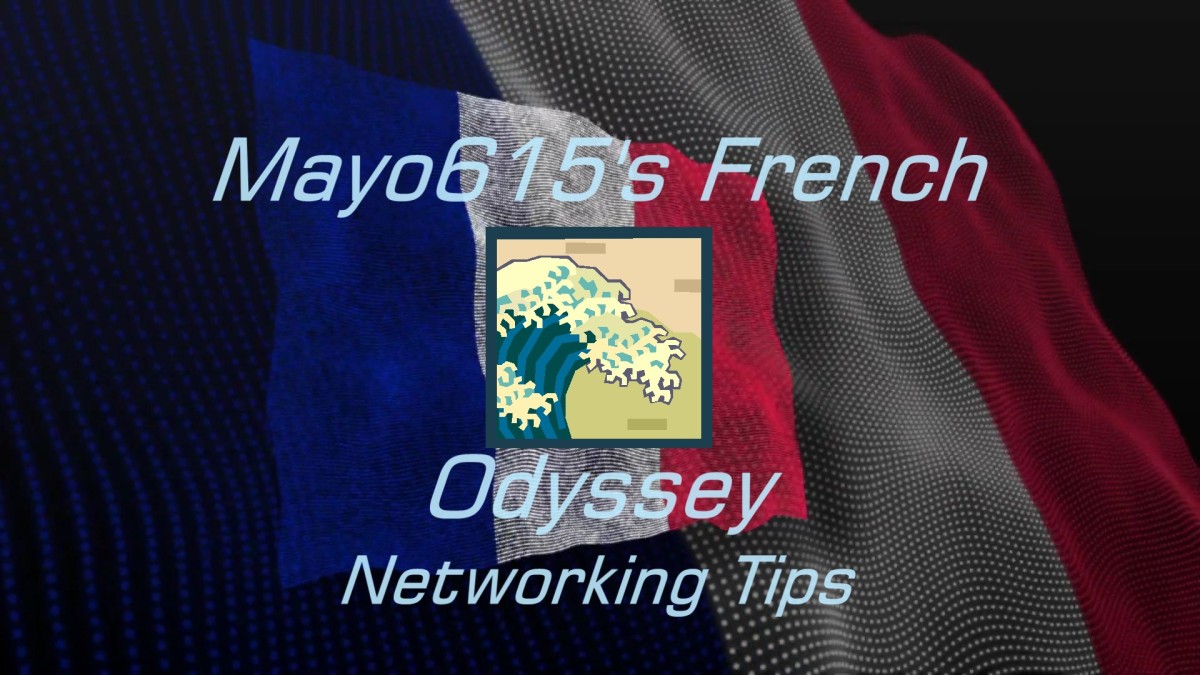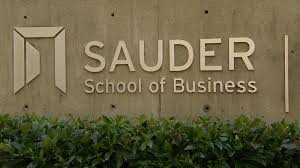Twenty-one-year old Christian McCrave feels like he did his part.
He got good grades in high school and completed a four-year degree at the University of Guelph in southwestern Ontario. He studied mechanical engineering, in part because he thought it would land him a job.
It hasn’t.
“I actually thought that coming out of school that I would be a commodity and someone would want me,” McCrave said. “But instead, I got hit with a wall of being not wanted whatsoever in the industry.”
McCrave says he believed in the unwritten promise of a post-secondary education: work hard at school, and you’ll end up with a good and stable job.
Now, he’s not so sure.
“Being unemployed while having a degree is kind of a kick in the face,” McCrave said. “If anything, it’s a setback. You have all this debt and this degree, and everyone has one, but it doesn’t get you further in life sometimes.”
Since graduating last year, McCrave has applied for 250 engineering jobs, but he’s only had four interviews and no job offer.
McCrave isn’t alone. More than 12 per cent of Canadians between the ages of 15 and 24 are unemployed and more than a quarter are underemployed, meaning they have degrees but end up in jobs that don’t require them.
The latest numbers from Statistics Canada show that the unemployment rate for 15-to-24-year-olds is almost twice that of the general population.
McCrave has expanded his job search to include retail and recently applied to work at the local Sobeys grocery store near his parent’s house in London, Ont., where he has lived since soon after graduation.
“It’s a job. Something to feel accomplished from,” said McCrave. “As much as an engineer can be accomplished by cutting deli meats.”
Co-ops, apprenticeships key to employability
The challenge McCrave faces is experience: namely, he doesn’t have any. The most recent work experience on his resume is sales associate at Winners.
Sandro Perruzza, the chief executive officer at the Ontario Society of Professional Engineers (OSPE), is familiar with graduates like McCrave.
“He could have applied for co-ops or apprenticeships while he was at school — even if it delayed his graduation,” Perruzza said. “We strongly advocate co-ops. The fact is because of the sheer number of applicants these days, the ones who get the jobs have some kind of experience.”
Should McCrave land one of the retail jobs he’s applied for, he’ll achieve one of the hallmarks of his generation: underemployment.
‘With millennials, the idea is that we are lazy and that we don’t work hard and stuff is given to us.’– Christian McCrave, 21, engineering graduate
A 2014 Canadian Teachers’ Federation report found nearly a quarter of Canada’s youth are either unemployed, working less than they want or have given up looking for work entirely.
The number of engineers in Ontario who are underemployed is 33 per cent, according to the OSPE.
Still, McCrave says he often hears it’s his own fault that he’s unemployed.
“With millennials, the idea is that we are lazy and that we don’t work hard and stuff is given to us — the idea of the participation award,” McCrave said. “We didn’t want the participation award. We didn’t want to be told we are not good enough but here’s an award anyways. We want to compete; we want to succeed.”
‘The millennial side hustle’
Fast forward a few years in the job trajectory of the millennial generation, and you’ll find Clair Parker. Parker, 26, has a political science degree from Carleton University in Ottawa and a certificate in public relations from Humber College in Toronto.
“I live in an apartment, I have three roommates, and I don’t have benefits,” said Parker. “If I were the exception, I would feel upset about that because I would feel that I had done something wrong, but I am not the exception. I am the norm.”
Parker’s bartending job doesn’t pay enough to make ends meet so she cobbles together enough money to live in Toronto by also working at a yoga studio and house sitting.
“I joke with my friends all the time about the millennial side hustle,” Parker says. “We all have different side hustles that we do to get money. So many people who would have worked in-house for a company before are freelancing now.”
The millennial side hustle (also known as the gig economy) means no steady job but also no safety net.
“If you have a toothache now and you are 24 years old, you freak out,” says Parker. “That’s going to be a couple of grand when you go to the dentist for the first time. I think people are going to feel really disenfranchised by the workforce and uncared for by the workforce.”
Parker works primarily at Halo brewery in Toronto, bartending and doing whatever else is needed to keep the small business running.
“On paper, I am a bartender,” Parker says. “But anyone who has worked with a small business understands that it’s kind of an all hands on deck situation. You have a lot of opportunities to learn a lot of different things.”
Parker bristles at the suggestion that she is underemployed.
“I am not underemployed, and I kind of get offended when people say I am underemployed,” Parker says. “It implies that they know more about my situation than I know about my situation. It implies just the [job] title means more than what is going on in the workplace. It’s a huge assumption.”
While Parker probably could have gotten her job without five years of post-secondary education, she says her education will allow her to grow along with the business. She is banking on potential — her own and the company’s.
The university enrolment boom
The promise of higher education is alive and well in Canada. There are more university students than ever before. In 2015, there were more than two million students enrolled at Canadian universities and colleges, compared to almost 800,000 in 1980.
“With a good education, you will have a good future. With a good education, you will have a good job,” said Kimberly Ellis-Hale, an instructor at Wilfrid Laurier University in Waterloo, Ont., who teaches sociology and other subjects. “And I think for past generations, it may have been [the case]. I think for future generations, it’s not a guarantee.”
Even though economic indicators that track employment reveal a trend toward more precarious jobs, Ellis-Hale says most of her students don’t see that as their future. She didn’t either, but that’s how things turned out.
‘I teach in a place that sells education as the path to a better and more secure life, and I don’t have a part of that life.’– Kimberly Ellis-Hale, contract faculty, Wilfrid Laurier University
Ellis-Hale is contract faculty, and even though she’s been teaching university courses at Laurier since 1998, she has to re-apply for her job every four months.
“I have very little job security,” Ellis-Hale said. “And being precariously employed takes its toll.”
Ellis-Hale’s two children are now grown up and live on their own, but she vividly remembers standing in the pharmacy when they were young trying to decide which child needed antibiotics the most.
“I couldn’t afford to purchase both of them,” Ellis-Hale says. “And how do you live with that? I teach in a university. I teach in a place that sells education as the path to a better and more secure life, and I don’t have a part of that life.”
Turning the promise into a guarantee
The University of Regina’s UR Guarantee program, launched in 2009, turns the unwritten promise of post-secondary education into an actual guarantee. If a student enrolled in the program doesn’t get a full-time job in their field within six months of graduation, they can return for a year of undergraduate study tuition-free.
“The reason we do this is we know that if students do all the things that are part of the program, they are going to be successful,” said Naomi Deren, associate director of student success at the university.
Students from any department can enrol in the program and must complete career development training, including resume reviews and job interview seminars.
In their final year, students are required to network and complete a labour market overview in their chosen field. Their job search begins while they are still at school.
‘The average student doesn’t … do that preparation, isn’t thinking about their career in second year and is sort of left scrambling at the end of it.’-Naomi Deren, associate director of student success, University of Regina
“I really think that the average student doesn’t do all of that stuff, doesn’t do that preparation, isn’t thinking about their career in second year and is sort of left scrambling at the end of it,” Deren said.
Of the 120 students who have participated in the program only two have come back for the free year.
“Honestly, everyone else has found what they were looking for,” Deren said. “We have students who are teaching — they got full time contracts right out of university … We have students who are working in marketing, communications. We have a reporter for the Leader Post.”
Keeping students from dropping out
Jenna deBoth, 21, is in her fourth year of an education degree program at the University of Regina and all she can think about is graduating.
“I am so excited. I can’t wait to actually get out there and get a job,” she said.
Still, deBoth, from the small town of Hudson Bay, Sask., almost didn’t make it past her first year of university. She credits the UR Guarantee program with keeping her from dropping out.
“I was absolutely terrified to be on campus because even though Regina is a small city, to me, it was huge,” deBoth said.
‘If I don’t get a job in my field? Well, I am gonna keep trying.’– Jenna deBoth, 21, 4th-year University of Regina student
DeBoth happened to see a poster advertising the UR Guarantee program. She signed up and within a few months, she was volunteering and had a growing circle of friends.
“We see ourselves in the beginning as high school guidance counsellors,” Deren said. “We make sure students are successful and are retained here at the university.”
Deren says retention rates among UR Guarantee students are 10 per cent higher than those of the general student population.
DeBoth hasn’t yet found a teaching job for the fall, and she admits she’s nervous about what’s out there.
“If I don’t get a job in my field? Well, I am gonna keep trying,” she said. “This is something that I am passionate about. I have made sure I have skills that will help me no matter where I go.”

























